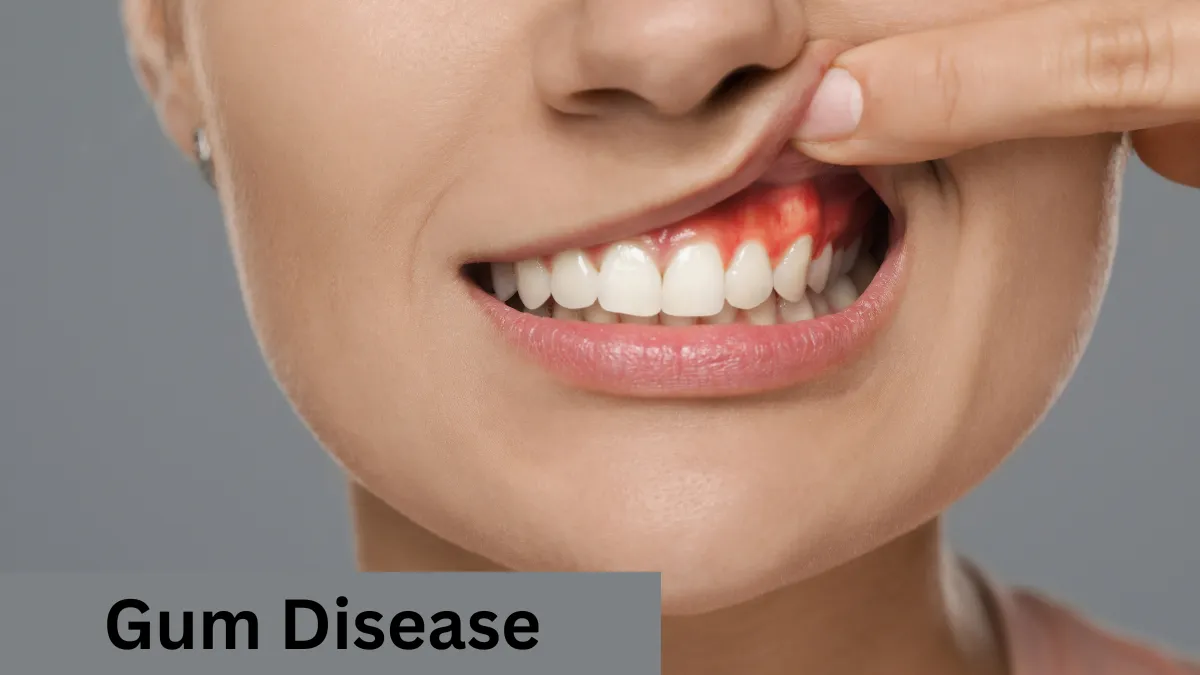Table of Contents
When we think of gum disease, we often think of sore gums or bleeding while brushing. But can gum disease kill you? Gum disease might be far more severe than the majority of people think. If left untreated, it may result in harmful health problems, even life-threatening conditions. In this article, we’ll uncover the facts you need to know about gum disease and why you should take it seriously.
What is Gum Disease?
Gum inflammation, such as gingivitis, can indicate periodontitis, a form of gum disease affecting teeth and gums: plaque buildup and plaque and tartar at the gum line lead to gum infection. If untreated, advanced gum disease can result in tooth loss and gum recession, causing gums to pull away from your teeth. So, can gum disease kill? It can’t be directly, but its effects on systemic health and cardiovascular disease are concerning.
Can gum disease kill you?
Studies have demonstrated a substantial correlation between untreated gum disease and major health issues, even though gum disease is not a direct cause of death. Chronic inflammation caused by gum disease can aggravate conditions such as diabetes, heart disease, and lung issues. Although gum disease doesn’t directly cause death, its effect on overall health underscores the importance of regular dental care and taking proactive steps to maintain your well-being.
Difference Between Gum Disease and Periodontal Disease
Periodontal disease is a severe gum disease that compromises gum tissue, gums and teeth, and even the rest of the body. Poor hygiene causes bacteria from your teeth to spread, risking serious health issues. Gum disease can result in serious gum problems like teeth loss or systemic conditions. Regular dental cleaning, scaling and root planing, and visits to a dental hygienist are vital to ensure healthy gums.
Causes and Prevention of Gum Disease
Conditions like diabetes, hormonal changes, and smoking increase the risk of gum disease. Symptoms of gum disease, such as around-your-teeth sensitivity and neglected gum disease, can worsen depending on the severity. Managing gum disease involves regular care and understanding gum disease as linked to disease risk and health conditions. Adopting professional dental practices helps treat gum disease effectively, preventing its development and maintaining dental health. Additionally, learning what causes gum recession can provide valuable insights into preventing further damage and protecting your gums.
Gum Disease and Overall Health
Gum disease, diabetes, and gum disease impact overall health profoundly. Evidence shows that health topics, like the increased risk of heart disease, link oral issues to serious health concerns. Gum diseases like periodontitis can spread to other areas of the body, making maintaining oral health crucial. Preventing the earliest stage of gum disease ensures better outcomes for the parts of the body affected.
Treatment and Management
Focusing on addressing gum disease can result in serious challenges when treating it. Regular care, including scaling and root planing, aids recovery. Preventative measures like cleaning around the teeth help maintain healthy gums and reduce the risk of heart disease. Timely intervention with a dental hygienist and proper oral care make a significant difference, ensuring you save your teeth and improve your systemic health.
How Can Gum Disease Impact Your Health?
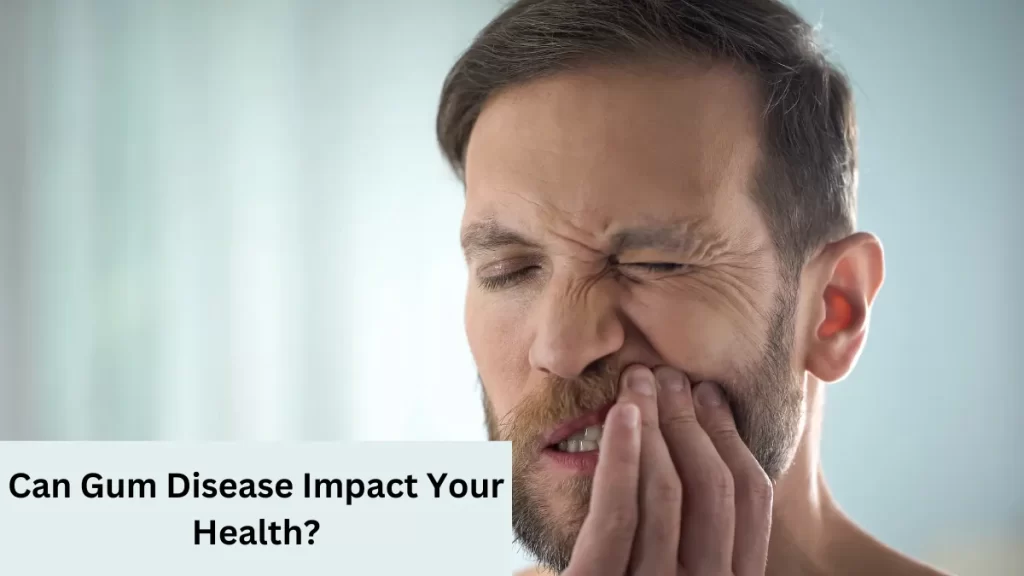
Can gum disease kill you? It may seem surprising, but untreated gum disease can lead to significant health risks. Gum disease isn’t just about your mouth. When the infection spreads, it can move into your bloodstream. From there, it can affect other body parts, including your heart and lungs. Research has demonstrated a link between gum disease and heart disease, strokes, and even certain types of cancer.
The Link Between Gum Disease and Heart Disease
One of the most severe risks of untreated gum disease is heart disease. But how are they related? Dangerous bacteria can enter your bloodstream if you have gum disease. This bacterium can inflame your blood vessels, increasing your risk of cardiac issues. So, can gum disease kill you? Indeed, if you ignore it, your risk of heart attack and stroke will increase.
Can Gum Disease Cause Respiratory Problems?
Remarkably, gum disease can also cause respiratory problems. Oral germs can enter your lungs and cause illnesses such as pneumonia. Individuals with long-term lung disorders are particularly vulnerable. Can gum disease, therefore, be fatal? Yes, if severe respiratory ailments arise. The first step in lung protection is taking good care of your gums.
Diabetes and Gum Disease: A Dangerous Connection
Did you know there is a two-way relationship between diabetes and gum disease? Gum disease is more common in those who have diabetes. However, gum disease can also complicate blood sugar regulation, resulting in a vicious cycle. If not treated, the complications from diabetes and gum disease can lead to life-threatening issues. So, can gum disease kill you? It may make managing diabetes much harder, leading to dangerous outcomes.
Is Gum Disease Transmissible?
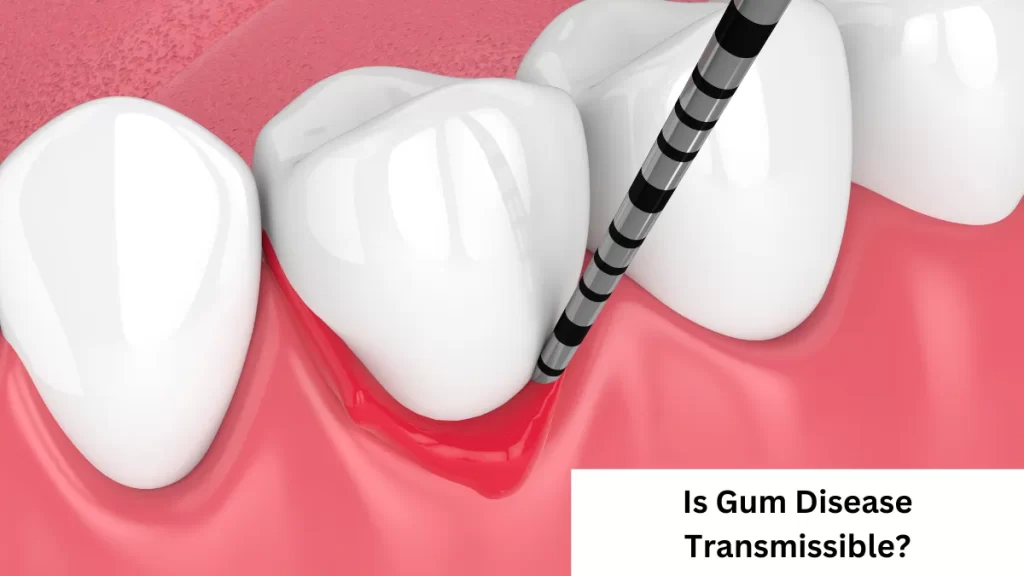
Whether gum disease is contagious is often raised, and the answer lies in how bacteria are spread. While gum disease isn’t directly infectious, the bacterium that causes it can be transmitted from person to person. These microorganisms can spread through kissing, sharing cutlery, and using the same mouthwash products.
Being aware of how bacteria can spread, especially if someone close to you has gum disease, helps you take steps to protect your oral health. Maintaining proper dental hygiene is essential to preventing the spread of gum disease. Avoid sharing toothbrushes, floss, or other dental items with others. Additionally, you should exercise caution when engaging in activities that involve saliva if you or someone you know is experiencing the signs of gum disease.
Open discussions about oral health within your social circles can increase awareness and encourage collective efforts to maintain good gum health. These small measures can lower the chances of bacterial transmission while promoting better oral health.
Also Read: Can Gum Disease Kill You? Facts You Can’t Ignore!
Symptoms You Shouldn’t Ignore
Recognizing the early signs of gum disease before it worsens is necessary Some symptoms include:
- Red, swollen gums
- Bleeding when brushing or flossing
- Persistent bad breath
- Loose teeth
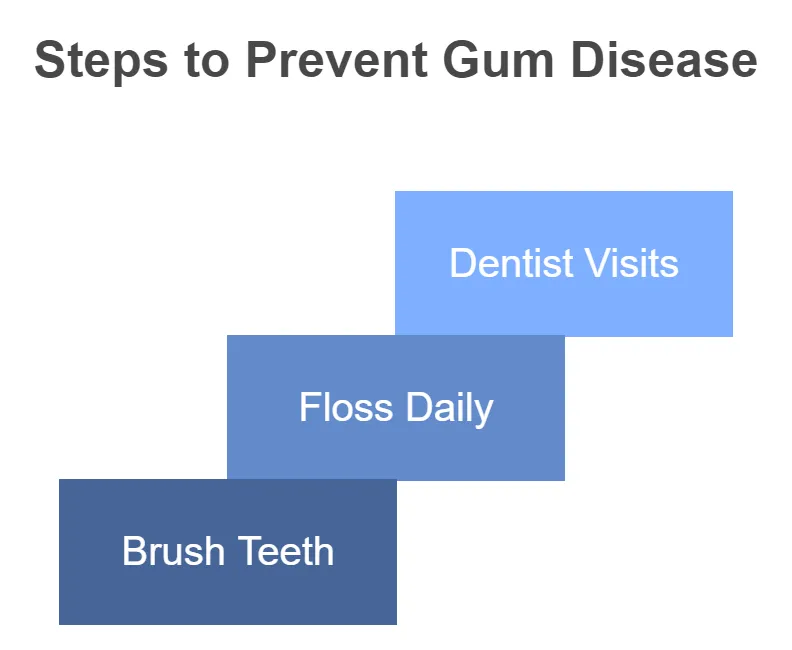
It’s time to act if you observe these symptoms. Please, don’t wait until it’s too late.
Also Read: How Long Does Eye Strain Last? Uncover the Shocking Truth!
How to Prevent Gum Disease
Preventative measures are the best defense against harm. Here are a few easy actions that you can do:
- Brush your teeth twice a day using flourinated paste.
- Use flossing every day to remove plaque from between your teeth.
- Get your checkups from dentist regularly for cleanings and exams.
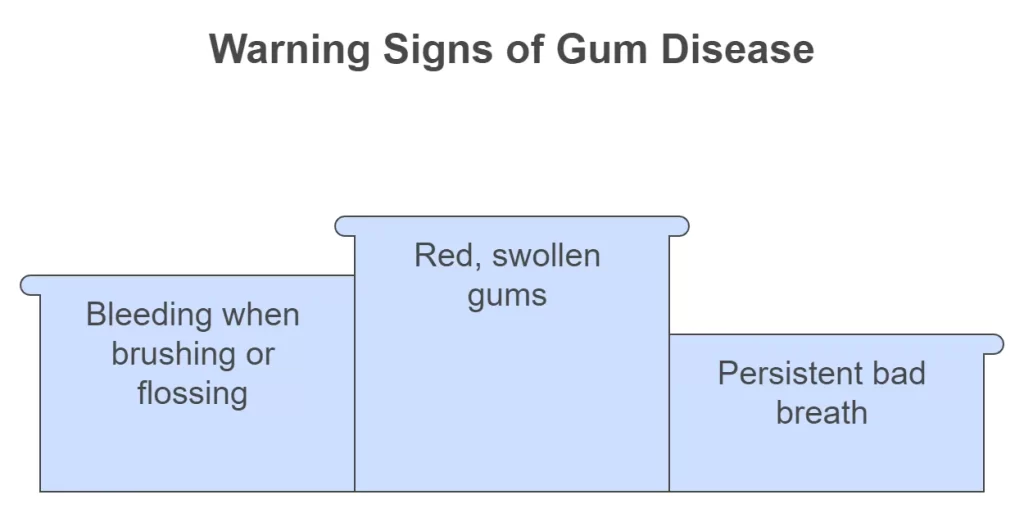
Proper oral hygiene helps you avoid the significant health hazards of untreated gum disease.
Also Read: Before You Apply Neosporin on Your Dog, Read This!
Can Gum Disease Kill You? Yes, It Can
Can gum disease, therefore, kill you? Yes, particularly if treatment is not received. Gum disease can damage your heart, lungs, and general health, in addition to your mouth. Don’t disregard gum disease symptoms. Early treatment can prevent the worst outcomes. Take care of your gums, and you’ll protect your health for the long term.


